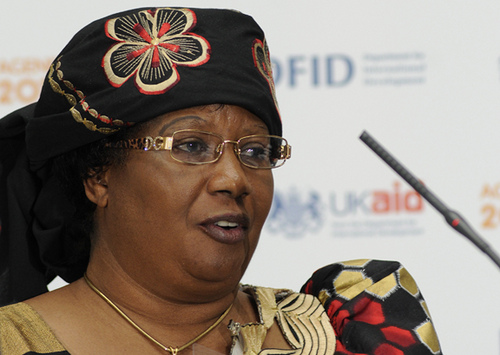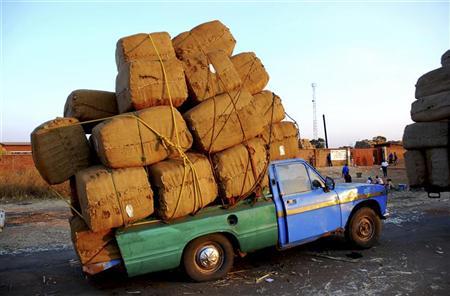Taxpayers in Malawi’s ailing economy have coughed at least K308 million (about $1.03 million) for air tickets and allowances for President Joyce Banda and her entourage trip to the United Nations General Assembly in New York.
Treasury sources confided that each member of the President’s entourage is claiming $280 (about K84 000) per day in allowances.
The President is scheduled to be in the United States of America for three weeks. The Nation could not establish whether the entourage will be with her throughout.
JB, as she is widely known, left the country on Saturday for the 67th Session of the UN General Assembly.
The assembly is the main deliberative, policy-making and representative organ of the UN. It meets in regular session intensively from September to December each year and thereafter as required.
Sources said JB has taken at least 40 people on her entourage, including some traditional leaders and People’s Party (PP) loyalists.
But the US Embassy’s acting public affairs officer Stephanie Reed said: “Due to privacy laws, we [the US Embassy] are unable to give out information on visa applications or visas issued [to the Malawi delegation to the UN].”
The Malawi News Agency (Mana) reported that while in the US, the President—who ascended to the presidency in line with constitutional order on April 7, 2012 after the death of president Bingu wa Mutharika—is expected to deliver her maiden speech at the forum.
Banda is on September 26 2012 also scheduled to receive an African-America Institutes (AAI) Award for championing women’s rights and business leadership. The award will be presented at the 28th Annual AAI Awards Gala Dinner at the Grand Hyatt, according to Mana.
The President is expected back home on October 2 2012.
Joyce Banda’s trip comes at a time her administration is facing calls from some Members of Parliament and the public for her and Vice-President Khumbo Kachali to reduce both local and foreign travel to walk the talk of austerity measures being implemented ostensibly to bring back the economy on track.
Malawians are currently facing economic hardships characterised by rising cost of living, largely attributed to the 49 percent devaluation of the kwacha in May this year and ever rising pump prices of fuel due to adoption of a full-cost-recovery automatic pricing mechanism (APM). Inflation rate hit 25.5 percent in August 2012 from 21.7 percent in July, representing one of the highest inflation rates Malawi has recorded in the last decade.
Finance Minister Ken Lipenga targets an average inflation rate of 18.4 percent by December 2012.
Whereas Malawi’s founding president, the late Dr Hastings Kamuzu Banda, who ruled during the one-party regime from 1964 to 1994, rarely attended the UN General Assembly and instead delegated the country’s envoy at the UN or other high-ranking government officials, ironically, the post multiparty democracy presidents, notably BakiliMuluzi (1994 to 2004) and the late Mutharika (2004 to 2012) had been regular attendees at the assembly.




